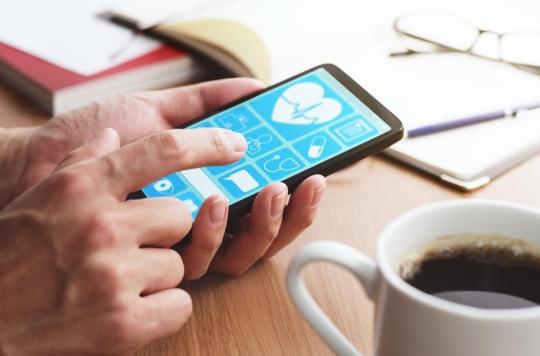For two-thirds of health applications, intended for sick patients, no clinical study was conducted before marketing.

- In total, 7 of the 38 tools seeking reimbursement were rated as having a high probability of reimbursement.
- “This screening tool is simple, fast and can be deployed on a large scale to initiate an assessment of the clinical relevance and quality of a health application”, according to the researchers.
250. This is the number of health applications that, in 2020, were created and marketed daily on the “app store”, i.e. an online portal on which it is possible to buy and download softwares. In total, 90,000 new tools were created in 2020, according to a study published in the journal Journal of Medical Internet Research.
A new scoring tool
“The vast majority of these apps have not been clinically validated, their quality is unknown, and users do not know if they are effective and safe,” indicated French researchers in the works. To overcome this problem, they developed a new scoring tool that would assess the quality and clinical relevance of each application. The latter consists of a 26-item questionnaire based on the recommendations of the High Authority for Health (HAS), the European Society of Oncology and patient associations.
68 health apps analyzed
To find out if this tool works, scientists tested it with 68 health apps. “Oncology and general health apps were the most represented”, they specified. Of the apps screened, 32 were involved in remote monitoring by medical professionals. In terms of clinical outcomes, 5% of apps assessed overall patient survival.
No scientific evaluation
According to the results, 21% of the applications were the subject of randomized studies to evaluate their benefit before their commercialization. According to the team, 15% of them looked at real-life health data. As for the rest, namely 64% of the tools, no scientific study has been carried out. A real risk for application users.
“Our study shows that there is a clear margin for improvement! Patient associations want transparent information on the clinical usefulness of these tools and they are right. Evaluations need to be strengthened, especially for developers who request a refund for their app”, said Professor Fabrice Denis, president of the National Institute of e-health and co-author of the research.

















